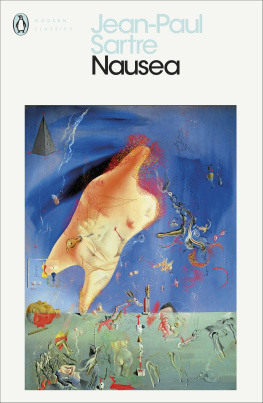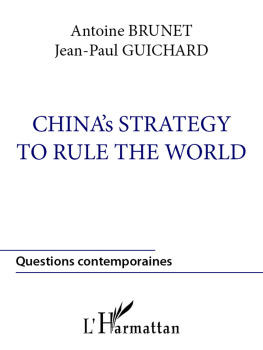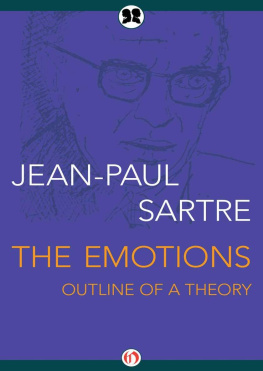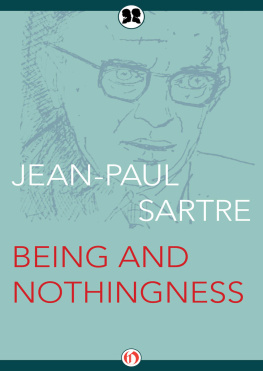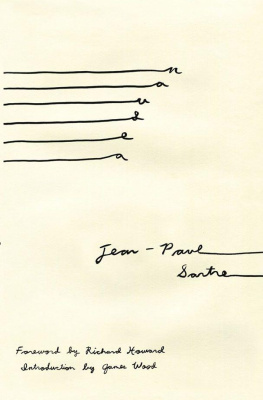Conner Clifford D. - Jean Paul Marat
Here you can read online Conner Clifford D. - Jean Paul Marat full text of the book (entire story) in english for free. Download pdf and epub, get meaning, cover and reviews about this ebook. publisher: Book Network Intl Limited trading as NBN International (NBNi), genre: Detective and thriller. Description of the work, (preface) as well as reviews are available. Best literature library LitArk.com created for fans of good reading and offers a wide selection of genres:
Romance novel
Science fiction
Adventure
Detective
Science
History
Home and family
Prose
Art
Politics
Computer
Non-fiction
Religion
Business
Children
Humor
Choose a favorite category and find really read worthwhile books. Enjoy immersion in the world of imagination, feel the emotions of the characters or learn something new for yourself, make an fascinating discovery.
- Book:Jean Paul Marat
- Author:
- Publisher:Book Network Intl Limited trading as NBN International (NBNi)
- Genre:
- Rating:5 / 5
- Favourites:Add to favourites
- Your mark:
- 100
- 1
- 2
- 3
- 4
- 5
Jean Paul Marat: summary, description and annotation
We offer to read an annotation, description, summary or preface (depends on what the author of the book "Jean Paul Marat" wrote himself). If you haven't found the necessary information about the book — write in the comments, we will try to find it.
Jean Paul Marat — read online for free the complete book (whole text) full work
Below is the text of the book, divided by pages. System saving the place of the last page read, allows you to conveniently read the book "Jean Paul Marat" online for free, without having to search again every time where you left off. Put a bookmark, and you can go to the page where you finished reading at any time.
Font size:
Interval:
Bookmark:
Jean Paul Marat
Revolutionary Lives
Series Editors: Brian Doherty, Keele University; Sarah Irving, University of Edinburgh; and Professor Paul Le Blanc, La Roche College, Pittsburgh
Revolutionary Lives is a book series of short introductory critical biographies of radical political figures. The books are sympathetic but not sycophantic, and the intention is to present a balanced and where necessary critical evaluation of the individuals place in their political field, putting their actions and achievements in context and exploring issues raised by their lives, such as the use or rejection of violence, nationalism, or gender in political activism. While individuals are the subject of the books, their personal lives are dealt with lightly except in so far as they mesh with political issues. The focus of these books is the contribution their subjects have made to history, an examination of how far they achieved their aims in improving the lives of the oppressed and exploited, and how they can continue to be an inspiration for many today.
Published titles:
Leila Khaled: Icon of Palestinian Liberation
Sarah Irving
Jean Paul Marat: Tribune of the French Revolution
Clifford D. Conner
Gerrard Winstanley: The Diggers Life and Legacy
John Gurney
www.revolutionarylives.co.uk

First published 2012 by Pluto Press
345 Archway Road, London N6 5AA
www.plutobooks.com
Distributed in the United States of America exclusively by
Palgrave Macmillan, a division of St. Martins Press LLC,
175 Fifth Avenue, New York, NY 10010
Copyright Clifford D. Conner 2012
The right of Clifford D. Conner to be identified as the author of this work has been asserted by him in accordance with the Copyright, Designs and Patents Act 1988.
British Library Cataloguing in Publication Data
A catalogue record for this book is available from the British Library
ISBN 978 0 7453 3194 2 Hardback
ISBN 978 0 7453 3193 5 Paperback
ISBN 978 1 84964 679 6 PDF
ISBN 978 1 84964 681 9 Kindle
ISBN 978 1 84964 680 2 ePub
Library of Congress Cataloging in Publication Data applied for
This book is printed on paper suitable for recycling and made from fully managed and sustained forest sources. Logging, pulping and manufacturing processes are expected to conform to the environmental standards of the country of origin.
10 9 8 7 6 5 4 3 2 1
Designed and produced for Pluto Press by Chase Publishing Services Ltd
Typeset from disk by Stanford DTP Services, Northampton, England
Simultaneously printed digitally by CPI Antony Rowe, Chippenham, UK and
Edwards Bros in the United States of America
To three American prisoners of conscience
Lynne Stewart
Mumia Abu-Jamal
Bradley Manning
To learn more about these courageous victims of injustice, go to
www.MaratScience.com
and click on Dedication
I have long been wary of authors who claim to have discovered some startlingly important aspect of history that all previous authors had somehow overlooked. Now I find myself reluctantly having to make a claim almost (but not quite) like that.
Jean Paul Marat was a key leader of what was arguably the most important of all social revolutions. And yet there have been virtually no adequate biographies of Marat published in the English language. Why not?
I am hard pressed to answer that question. The reason that I am not claiming to be the only adequate biographer of Marat is contained in the qualifying phrase in the English language. Numerous fine biographies have appeared in Frenchmy personal favorites are Jean Massins and Olivier Coquardsbut none have been published in English translation. The present volume is intended to remedy that glaring omission in the literature on the French Revolution.
As for previous English-language biographies of Marat, there have been a grand total of two published in the past hundred years. One was by the distinguished historian Louis Gottschalk and the other was by me. Gottschalks, which was originally published in 1927 and reissued, unchanged, in 1967, is not simply out of date, but in my opinion is also seriously flawed in its interpretation of Marats role in the Revolution.
Gottschalk portrayed Marat as an accidental figure on the stage of historyan ultraradical demagogue who gained immense notoriety but should not be counted among the authentic leaders of the Revolution. In 1997 I published a biography of Marat to challenge that notion. Au contraire, I argued, Marat was a highly effective leader of the French Revolution who earned his influence through the consistency and principled nature of his leadership.
My 1997 biography of Marat is not out of date, but I felt it would now be useful to write another one with a different focus. Although the earlier book did not ignore Marats revolutionary activity, it put more emphasis on his much longer career as a scientist. That was an aspect of his life that had not previously been treated adequately even by French biographers.
The volume you now hold in your hands, however, centers its attention squarely on Marats political career as journalist, agitator, and leader of the French Revolution during the last four years of his life, 178993. That, after all, is the basis of his historical importance and what he is rightfully remembered for. Without Marat, the French Revolution may well not have resulted in the social transformation of France, Europe, and the world.
Marats pre-Revolutionary careers as a medical doctor and an experimental physicist are not irrelevant to his later development, however. To fully come to grips with this enigmatic figure, it is necessary to take that formative part of his life into account. For that reason, I have created a website devoted primarily to an exposition of Marats medical and scientific work during the years 1765 through 1789, which I invite readers of this volume to peruse (www.MaratScience.com).
* * *
The French Revolution dealt the death blow to the traditional social structure not only in France but throughout Europe. The old regime had been founded on the principle of natural inequality: that some people were by birth superior to others and thereby entitled to special privileges. The Revolution produced a social order based on the opposite premise of human equality, from which derived the rights to equality before the law, representative government, and guarantees of civil liberties.
But to Marat these gains, however important, did not go nearly far enough. They amounted to a great leap forward in political equality but not economic equality. The rich and poor gained equal rights to sleep under the bridges of Paris, but the wretched of the earth remained mired in their wretchedness. What set Marat apart from all other major figures of the Revolutionfrom Mirabeau to Brissot to Danton to Robespierrewas his total identification with the struggle of the propertyless classes for full social equality.
The ever-deepening gulf between the billionaires and the slumdogs in todays world testifies to the continuing relevance of Marats revolutionary perspective. Properly understood, the triumphs and failures of his career shed light on some timeless and universal aspects of the revolutionary process that can benefitand perhaps inspireparticipants in the current struggles for social change. May they triumph, and the sooner the better.
Clifford D. Conner
November 2011
This book owes its existence first of all to Paul Le Blanc and the debt is twofold. It was he who in 1997 originally asked me, on behalf of what at that time was Humanities Press, to write a biography of Marat, which I did. And then it was also he who more recently asked me, on behalf of Pluto Press, to write the biography of Marat you are presently holding in your hand. Thank you twice, Paul.
Next pageFont size:
Interval:
Bookmark:
Similar books «Jean Paul Marat»
Look at similar books to Jean Paul Marat. We have selected literature similar in name and meaning in the hope of providing readers with more options to find new, interesting, not yet read works.
Discussion, reviews of the book Jean Paul Marat and just readers' own opinions. Leave your comments, write what you think about the work, its meaning or the main characters. Specify what exactly you liked and what you didn't like, and why you think so.


